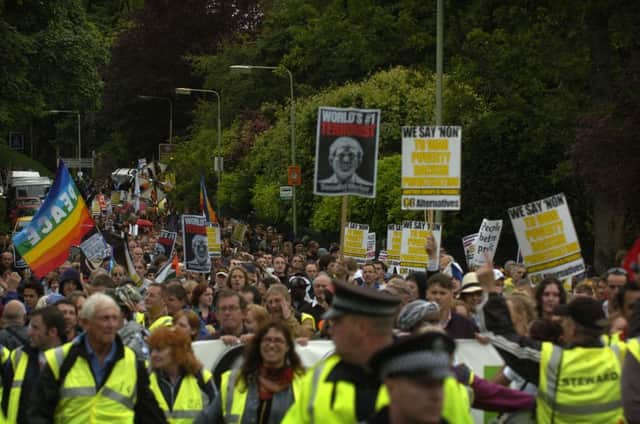Chris Marshall: Undercover policing probe must be extended


Last week she became the first woman to formally win a case against the Metropolitan Police after it emerged that man was Mark Kennedy, a notorious undercover officer who slept with women he was spying on.
Ms Wilson is one of many campaigners who believe they were spied on by Scotland Yard during protests which took place while the G8 was at Gleneagles.
Advertisement
Hide AdAdvertisement
Hide AdThe force last year issued an “unreserved apology” and paid compensation to seven other women who had relationships with undercover officers.
But Ms Wilson’s case was the first where the Metropolitan Police dropped its defence before judges. The officers who had relationships with female activists were attached to Special Branch’s Special Demonstration Squad (SDS) and the separate National Public Order Intelligence Unit (NPOIU).
Amid growing evidence that undercover Metropolitan Police officers spied in Scotland, pressure is now growing for a judge-led inquiry to be extended north of the Border.
The Undercover Policing Inquiry, led by Lord Justice Pitchford, is set to examine undercover operations carried out by English and Welsh forces from 1968 onwards.
The inquiry’s huge remit means it’s likely to investigate police spying during era-defining moments in 20th century Britain such as the 1984-85 miners’ strike and the poll tax riots of 1990.
Crucially, the inquiry’s terms of reference state its deliberations will only include activities that took place in England and Wales. As it currently stands, the inquiry will not cover any police activities which took place in Scotland.
After months of burying its head in the sand over the issue, the Scottish Government has finally recognised the importance of having the issue explored.
Advertisement
Hide AdAdvertisement
Hide AdAmid pressure from inquiry witnesses who believe they were spied on during the G8, justice secretary Michael Matheson wrote to the Home Office in December asking for the Pitchford inquiry to be extended to Scotland.
So far those entreaties appear to have fallen on deaf ears.
The issue took on a new dimension last week when Police Scotland admitted its new chief constable, Phil Gormley, had been head of Special Branch in 2006 – the division which had responsibility for the SDS before the undercover unit was disbanded in 2008.
There is nothing to suggest Mr Gormley had any knowledge of what some of the officers attached to the SDS were up to, but his involvement in the story has helped increase media interest in Pitchford north of the Border.
There is now plenty of evidence the Metropolitan Police spied on activists in Scotland during the summer of 2005.
It is therefore not inconceivable that there may have been other occasions in the not-too-distant past where the force has operated clandestinely north of the Border.
It has even been suggested officers may have been operating in Scotland in the run-up to the 2014 independence referendum.
That sort of police activity, if true, has implications for us all.
If the Home Office doesn’t extend Pitchford to Scotland, then we will need our own inquiry.